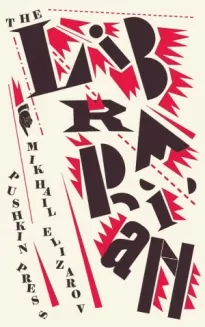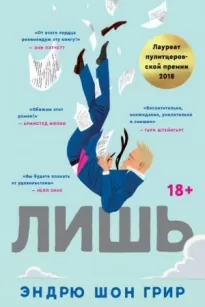The Librarian

- Автор: Михаил Елизаров
- Жанр: Современная проза / Социальная фантастика
- Дата выхода: 2015
Читать книгу "The Librarian"
GROMOV
THE WRITER Dmitry Alexandrovich Gromov (1910–81) lived out his days in total obscurity. His books sank without trace in a bottomless abyss of recycled paper, and when political catastrophes finally demolished his Soviet Homeland, it seemed that there was no one at all left to remember the writer Gromov.
Not many people had read him. Of course, there were the Soviet editors who assessed the political loyalty of texts, followed by the critics. But it was hardly likely that anyone had ever pricked up their ears in startled interest at the titles The Proletarian Way (1951), Fly On, Happiness! (1954), Narva (1965), By Labour’s Roads (1968), The Silver Channel (1972) and The Quiet Grass (1977).
Gromov’s life story progressed step by step in parallel with the development of his Socialist Motherland. He was educated at a Soviet seven-year school and a teacher-training college, and subsequently worked as the executive editor of a factory’s in-house newspaper. The purges and repressions passed Gromov by and he calmly carried on as he was until June 1941, when he was drafted into the army and found himself on the front line as a war correspondent. In the winter of 1943 Gromov suffered frostbite in his hands—they managed to save the left one, but his right hand was amputated. After the victory was won, Gromov took his family from Tashkent, the city to which they had been evacuated, to the Donbas and stayed there, working in the editorial office of a municipal newspaper until he retired.
Gromov took up the literary pen late, as a mature forty-year-old. He often drew his subjects from the development of the country as a whole, celebrating the everyday, plain, cotton-print life of small provincial towns, settlements and villages, writing about mines, factories, boundless expanses of virgin soil and battles fought for the harvest. The heroes of Gromov’s books were usually “Red Directors” or collective-farm chairmen, soldiers newly returned from the front, widows who had preserved inviolate their love and their civic courage, and Young Pioneers or Young Communist League activists—resolute and jovial, ready and willing to perform some heroic “feat of labour”. Good triumphed with excruciating regularity: metallurgical combines sprang up in record times; a young man who only yesterday had been a student was transformed into a seasoned specialist after a mere six months of practical work in an industrial plant; a factory workshop over-fulfilled the plan and took on additional obligations; in autumn golden rivers of grain flowed into a collective farm’s storage bins. Evil was always re-educated or clapped in jail. And amorous passions also developed—but they were very chaste: following Chekhov’s axiom on firearms in plays, the gunshot of a kiss that was promised at the start of a book was fired as a damp, slobbery blank to a cheek in the final pages. But so much for the subject matter—all of this was also written in a dreary style, in soundly wrought but incredibly insipid sentences. Even the covers, with their tractors, combine harvesters and miners, were made out of some trashy kind of cardboard.
The country that gave birth to Gromov could afford to publish thousands of authors that no one read. The books lay in the shops, their prices were reduced to a few copecks, they were carted off to a warehouse and handed over for pulping, and more books that no one wanted were published.
The last time Gromov was published was in 1977, but after that all those people in the editorial offices, who realized that Gromov’s writings were the harmless verbal trash of a war veteran and that, while there was no particular social demand for them, society had nothing against the actual fact of their existence, were replaced by different people. Everywhere he went, Gromov received polite refusals. The state, already celebrating its own imminent suicidal demise, was hatching out the demonic literature of its own destroyers.
Gromov, a solitary widower now, realized that his allotted time had expired, and he too quietly expired, to be followed ten years later by the USSR, for which he had once written his books.
Although altogether more than half a million volumes of Gromov’s works were printed, only scattered, individual copies had found miraculous refuge in the libraries of clubs in remote villages, hospitals, corrective labour camps and orphanages, or been left to rot in basements, bound round crosswise with string and squeezed in between the documents of some Party Congress and multiple volumes of the Collected Works of Lenin.
And yet Gromov did have his own genuine devotees. And they scoured the country, collecting the surviving books, willing to go to any lengths to get them.
In everyday life Gromov’s books bore titles with references to river channels and steppe grass. But the titles used among Gromov’s collectors were quite different—the Book of Strength, the Book of Power, the Book of Fury, the Book of Endurance, the Book of Joy, the Book of Memory, the Book of Meaning…





